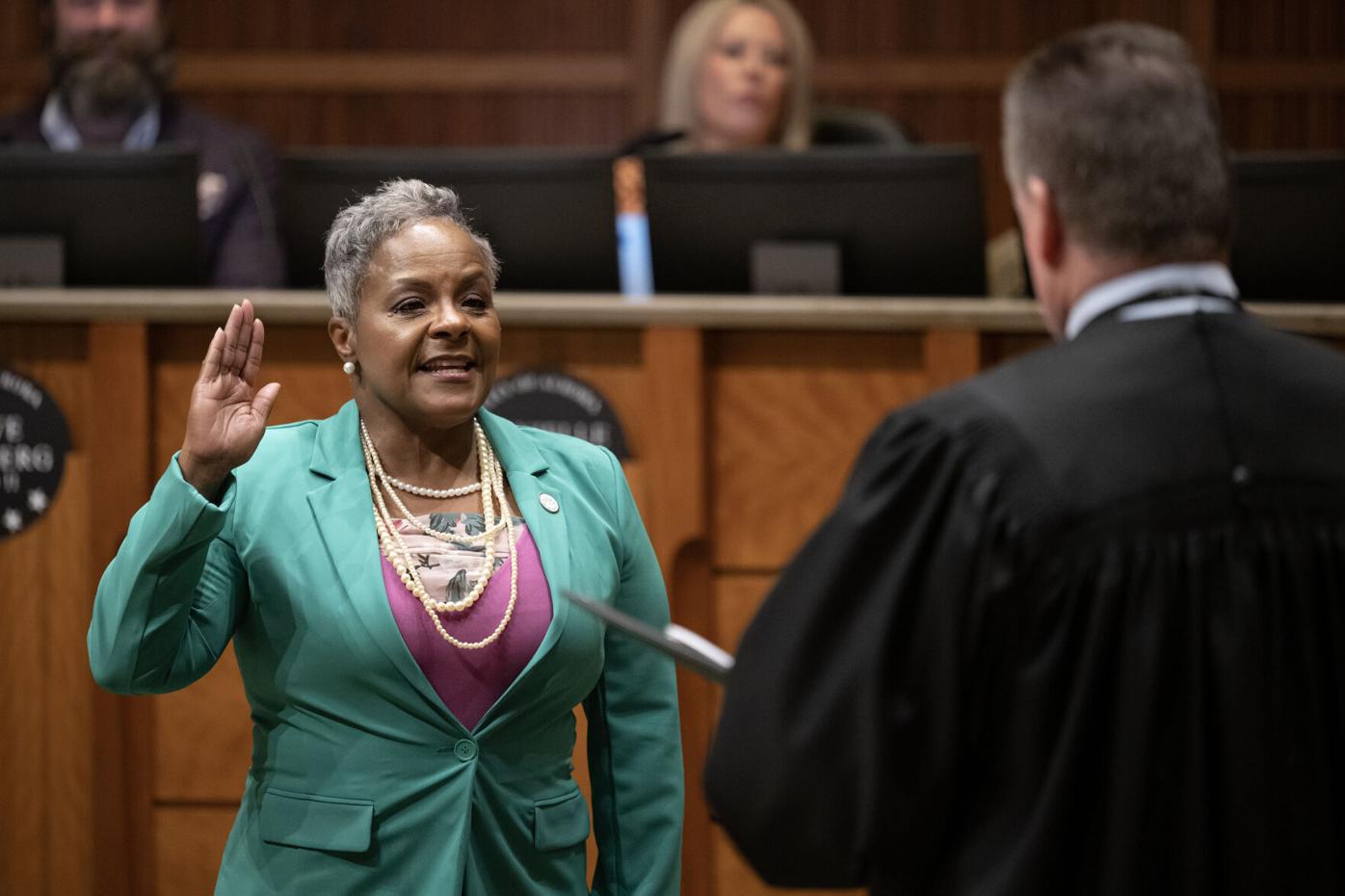‘I stand on the shoulders of everyone before me:’ Aurora Councilmember Stephanie Hancock reflects on Black History Month
“Black history isn’t one month for me, it’s a lifestyle that I’ve taken on as a person of color who lives in this county.”
Stephanie Hancock, a Black member of Aurora City Council, said those words to The Denver Gazette Tuesday when asked what Black History Month meant to her.
“For me to contribute to this, I stand on the shoulders of everyone before me, like our first Black city councilwoman,” Hancock said. “I wake up a brown-skinned woman every morning, and I see that as an opportunity.”
Hancock, the newest member of council sworn in to represent Ward IV in early December, said the best way to celebrate her history and culture is through serving others.
“It defies class, color and heritage because, as Americans first and foremost, we are obligated as human beings to serve each other and to be lighthouses wherever we can,” Hancock said.
Hancock has lived in Aurora’s Ward IV for more than 25 years and is a wife, mother, veteran, president of the Aurora Cultural Arts District and prior small business owner.
One of Hancock’s biggest inspirations is Frederick Douglass, she said, who “made no excuses, just worked hard.”
Douglass’ life work gives Hancock hope that if she pushes hard and doesn’t give up, she can make a lasting impact on the world.
“He’s a testament to what it means to work hard, to persevere in the face of tremendous odds, in the face of opposition, in the face of outright hatred,” Hancock said.
Hancock’s run for council had everything to do with legacy and inspiring the next generation, she said.
“It wasn’t about me,” Hancock said. “It’s about my grandchildren. It’s about saying to them that they can succeed in the face of all kinds of obstacles and barriers, real or imagined, that keep us from living our dream.”
It hasn’t been a “walk in the park” for those who came before her, Hancock said. The Black leaders who inspire Hancock have persevered through “tremendous hardship.”
Hancock pointed to Edna Mosley, the first Black councilwoman on Aurora’s City Council, saying Mosley went home every day and cared for her children while caring for the city at the same time.
“There are so many things that pioneers who happened to be Black have done to make our lives better,” Hancock said.
Mosley left her mark on Colorado in many ways, as a civil rights leader, educator, co-founder and board member of a women’s bank in Denver, and on Aurora’s City Council.
Mosley’s husband, John Mosley, was a member of the Tuskegee Airmen — a group of African American military pilots who fought in World War II.
The Mosleys are just two of thousands of Black people who have contributed to the fabric of the United State whose names “will only be known by God,” Hancock said, referring to the erasure of people of color throughout history.
“Dr. Charles Drew separated plasma and saved millions of lives and then lost his life because they wouldn’t take him in a segregated hospital,” Hancock said. “Think about music, culture, engineering, science … there’s so many things that we have contributed to this country as African Americans who don’t always get credit.”
Hancock also looks to Aurora’s Black leaders, like Jeffrey Nickelson, who founded Shadow Theater Company, State Sen. Janet Buckner and her husband John Buckner, who died in office as a state legislator and who was a longtime Aurora educator, and State Sen. Rhonda Fields.
Despite her political and philosophical differences with Fields, Hancock said she is a trailblazer who has moved beyond tragedy to make a lasting impact on her community.
“We might have philosophical differences, but those are the people who we want to look to,” Hancock said about Fields.
Fields entered politics after her son Javad Fields, and his fiancée Vivian Wolfe, were murdered in 2005.
The United States is in a “divisive time” right now, with people determined to tear the country apart, Hancock said. As a Black leader, Hancock said she has an obligation to be a “lighthouse, a beacon of hope, for every person” in her sphere of influence.
“I don’t live on race, I can’t hitch my wagon just to that,” Hancock said. “I was born in this country, for generations back we were born in this country, so this is my home and I will fight for it with every fiber of my being as long as God will allow, not just for me, but for my future generations to come.”
Editor’s note: This story initially incorrectly stated Aurora City Council member Stephanie Hancock is the only Black member of the council. Councilmember Angela Lawson, Ward V, is also Black. We apologize for the error.





